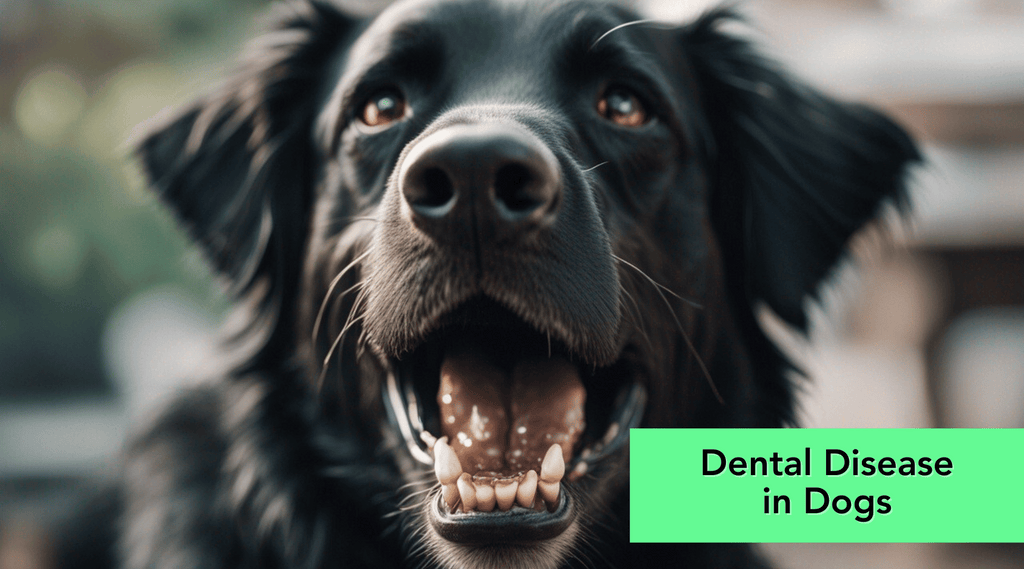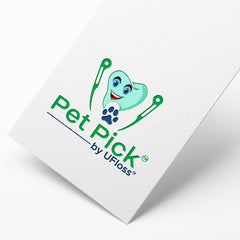Dental Disease in Dogs

Canine gingivitis is a threat to your dog's overall health. Discover how to avoid it and how to correct it
When it comes to our beloved canine companions, their health and well-being are of paramount importance. Just like humans, dogs can suffer from various health issues, and one of the most common and often overlooked problems is dental disease.
Dental Disease Prevalence in Dogs
You might be surprised to learn that dental disease is one of the most frequently seen medical conditions in dogs. In fact, over 80% of dogs aged three or older have active dental disease. The concerning part is that many dogs don't show obvious signs of this condition, which means it can go unnoticed and untreated without the vigilant eye of a dog owner and the care of a veterinarian. So, how can you keep your furry friend's oral health in check? Pet Pick, your pet's new best friend in oral health, is here to help!
Human vs. Canine Oral Health
Dogs can develop similar oral diseases to those found in humans, but with some variations. While tooth decay is the most common dental issue in people, dogs predominantly face periodontal disease. This distinction is crucial to understanding the different needs of our four-legged friends when it comes to oral health care. If you'd like to explore more about oral health solutions for your pet, you can learn more about Pet Pick.
Common Dental Problems in Dogs
Periodontal disease and fractured teeth are the two most prevalent dental issues in dogs. While the latter might sound like a painful accident waiting to happen, periodontal disease is far more common. The periodontium, which includes the gums, cementum, periodontal ligament and alveolar bone, becomes infected and inflamed, ultimately leading to tooth loss or worse if left untreated. On the other hand, fractured teeth usually result from chewing on extremely hard objects, such as bones, antlers and hooves. This kind of activity may seem natural for dogs, but it can lead to severe dental problems. If you're interested in learning how to maintain your dog's dental health, discover more about it with how to clean your dog's teeth.
High-Risk Breeds
Certain dog breeds are more prone to dental issues. Small breeds, including Chihuahuas, Collies, Dachshunds, Pugs, Shih Tzus and Yorkies are at an elevated risk of developing dental problems due to various factors such as overcrowding and tooth misalignment.
Larger breeds, like Labradors and Shepherds, are more likely to face tooth fractures due to their active nature. It's essential to understand these breed-specific risks to ensure the best care for your furry friend.
Preventing and Treating Dental Issues
Preventing dental problems in your dog should be a priority. The most effective way to keep dental disease at bay is through daily toothbrushing (for teeth) and using Pet Pick for getting at the nooks and crannies between teeth – just like in humans. However, many dog owners skip this crucial step, leaving their pup susceptible to gingivitis and gum disease.
When it comes to treatment, professional dental cleanings are essential to remove tartar and plaque. The procedure includes thorough dental examination, dental scaling and polishing. In some severe cases, tooth extraction might be necessary.

Caring for Your Dog's Dental Health
Remember, your dog's genetics might make them prone to dental diseases, but that doesn't mean they're doomed to oral health issues. Environmental factors, such as at-home care, concurrent diseases and diet, play a significant role in your dog's dental health. So, don't forget to pay attention to what your furry friend eats and offer proper dental care.
Just like any other aspect of your dog's well-being, their oral health requires attention and care. By understanding the common dental issues in dogs, you can take preventive measures and ensure a healthy, happy smile for your loyal companion. Because when it comes to your dog's dental well-being, a little love and care can go a long way.

